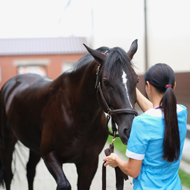
The partnership will further the development of Organ-on-a-Chip technology.
The Royal Veterinary College (RVC) has announced it has signed a Memorandum of Understanding (MoU) with Emulate, Inc. to support the development and use of Organ-on-a-Chip (OoC) technology.
The collaboration will allow Emulate to provide technical expertise and support, enabling scientists at the RCVS to design and establish Organ-Chip models of veterinary species. It will also help the RVC pioneer the use of animal Organ-Chips in research, making the technology more accessible to other academic and industry groups.
Dr Dirk Werling, Professor of Molecular Immunology at the RVC, said: “OoC, and other 3D tissue explant systems, will provide veterinary scientists with new tools to develop personalised medicine approaches for companion animals and new treatment strategies for farmed animals.
“More importantly, it will allow us to perform the necessary experiments from the beginning within the target species, ultimately reducing the number of animals needed. Thus, we are fully following the 3Rs.”
An organ chip model is a type of micro-physiological system that enables the continuous culture of living cells within dynamic, biomimetic environments.
By recreating physiologically relevant 3D microenvironments outside the body, OoCs enable cell-to-cell interactions and tissue-like behaviour on a miniature scale, and improve understanding of initial interactions of pathogens with the host. They therefore offer a promising tool for developing new intervention strategies by testing the right target in the right tissue.
OoC technology is already used in human disease research, but it is only starting to be applied in veterinary medicine. The hope is that it could help tailor treatments for pets and vaccines for farm animals.
Dr Stephan Schuell and Dr Asli Akadil from Emulate said of the collaboration: “We are proud to support the Royal Veterinary College as they establish the first veterinary-focused Organ-Chip service offering. Their work will open new avenues for applying OoC technology to animal health and broaden its impact in both veterinary and human medicine.”
Image (C) Emulate Inc/RVC.



 The BEVA has opened two new roles on its Nurse Committee.
The BEVA has opened two new roles on its Nurse Committee.